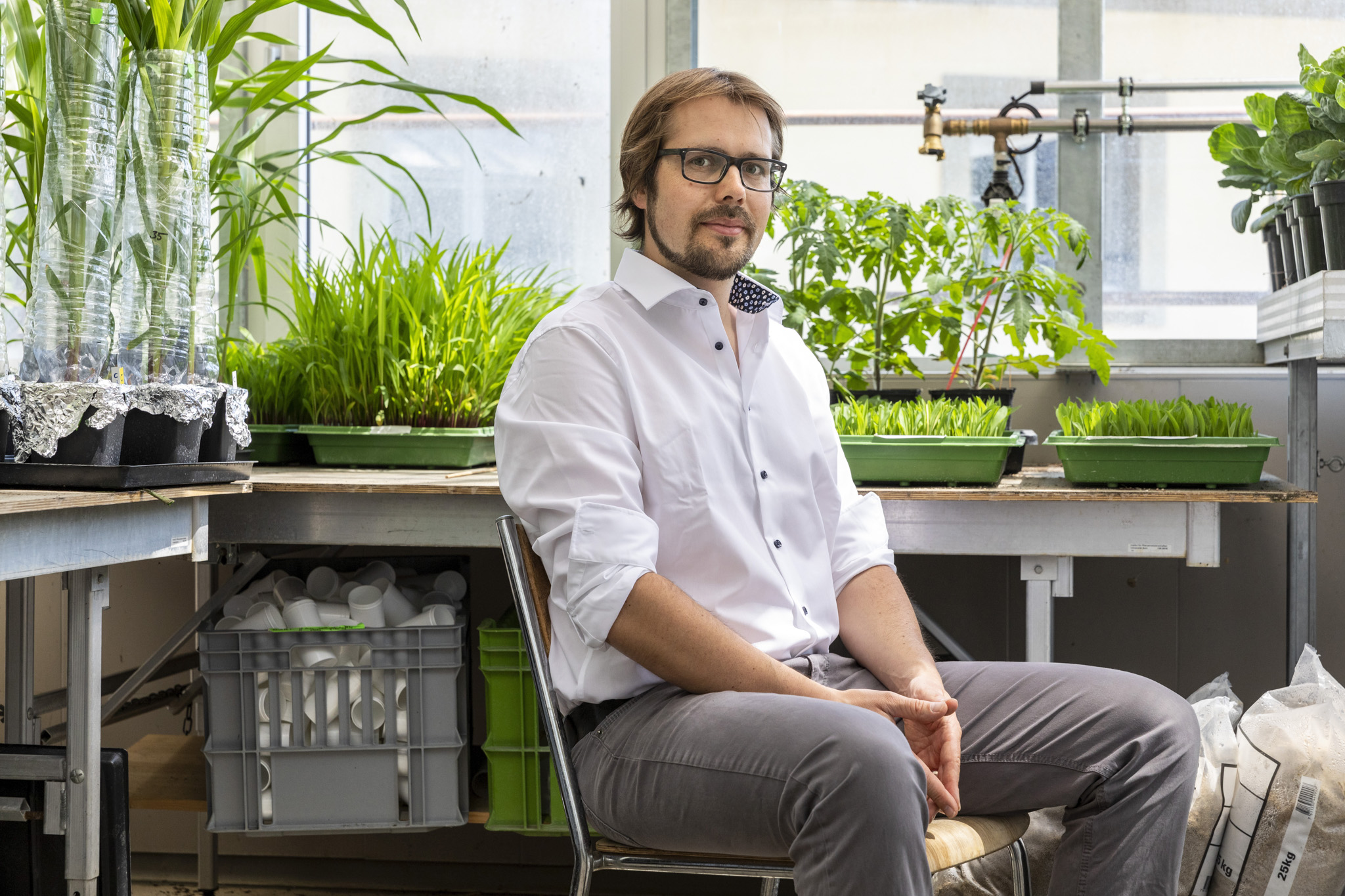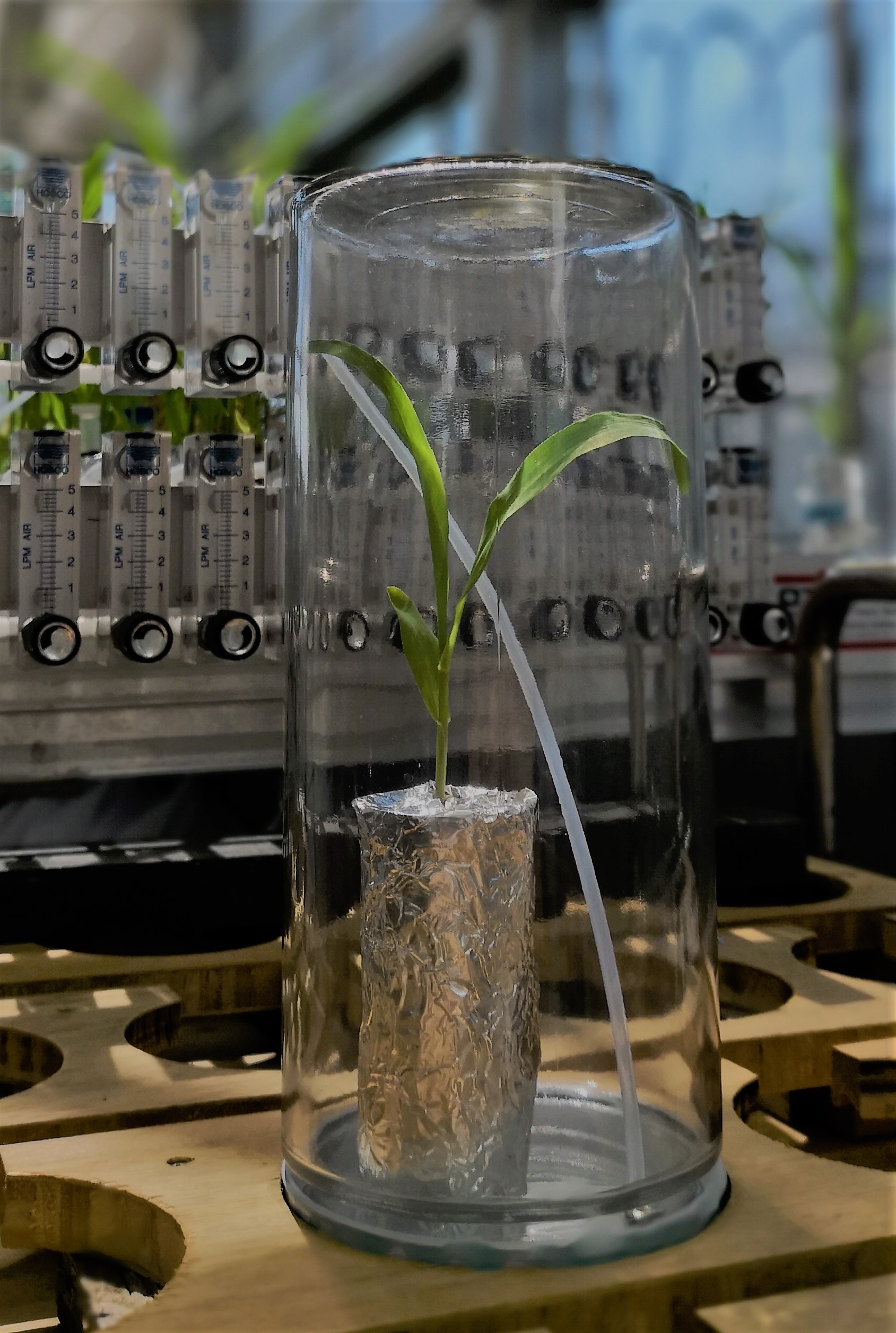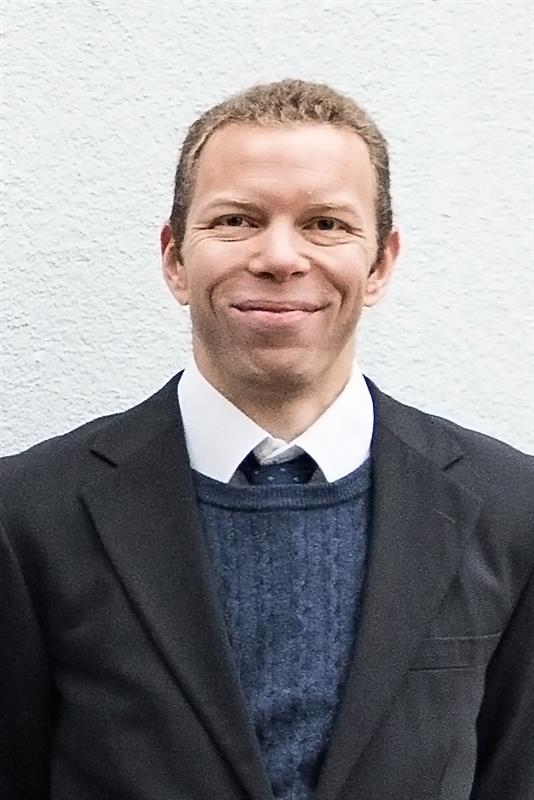Proposals by two Bernese researchers receive positive evaluation for EU funding
Proposals by plant scientist Matthias Erb and astrophysicist Brice-Olivier Demory for the coveted "Consolidator Grants" with the European Research Council ERC have received positive evaluation. As they will carry out their research projects at the University of Bern, they will not be funded by the EU but by the State Secretariat for Education, Research, and Innovation, SERI.
An ERC Consolidator Grant from the European Research Council (ERC) provides funding to outstanding researchers to establish or maintain a research team at a public or private research institution within the EU or an associated country. The grants, which are part of the EU research framework program "Horizon Europe", are each endowed with approximately 2 million euros and awarded for a period of five years. Currently in the program, the European Commission (EC) treats Switzerland as a non-associated country. In principle, it is not possible for researchers from non-associated, non-EU countries to participate in European Commission projects. However, there was an exception made for the ERC Starting and Consolidator Grants in 2021. These grants were specially evaluated by the EC, as Switzerland was still classified by the EC as a "country to be associated" at the time of the deadline for applications. If the researchers decide to carry out their project at the institution in Switzerland where they are based, the State Secretariat for Education, Research and Innovation SERI will provide funding instead of the EC.
Successful projects in plant science and space research
At the University of Bern, the CANWAS project of Prof. Dr. Matthias Erb from the Institute of Plant Sciences (IPS) and the SenseLife project of Prof. Dr. Brice-Olivier Demory from the Center for Space and Habitability (CSH) received successful reviews in the current call for applications. Both Matthias Erb and Brice-Olivier Demory have decided to stay in Switzerland and conduct their projects at the University of Bern.
"I am extremely pleased that these two top scientists have decided to stay at the University of Bern," says Hugues Abriel, Vice Rector for Research at the University of Bern. "However, it worries me that Switzerland continues to be classified as a non-associated country by the European Commission, because research is dependent on networking and international cooperation."
Also receiving positive evaluation is a grant proposal by particle physicist Pier Monni, who is employed at CERN. Two doctoral positions in his project will be based at the University of Bern if his project is carried out in Switzerland.
The Projects of Matthias Erb and Brice-Olivier Demory:
Project CANWAS - Volatile Information Transfer Across Multiple PlantsPlants can detect volatiles that are released by stressed neighbors and thus activate their defenses, for instance against herbivorous insects, in time. New research suggests that volatile can propagate as waves, thereby potentially reprogramming defenses of entire populations. CANWAS is developing a system that makes these hypothetical volatile waves measurable, and will use this system to study volatile-mediated interactions between groups of plants in the laboratory and in the field. In doing so, CANWAS will contribute to the fundamental understanding of plant interactions and will pave the way to using volatiles as natural plant strengtheners. The long-term goal of CANWAS is to enable agriculture to prepare entire fields for stress situations such as drought or herbivore attack by activating natural defenses of entire populations in time through the local application of volatiles. CANWAS is researching a new method for activating natural plant defenses in a targeted manner using scents. "In the future, this will make it possible to reduce the use of pesticides and better adapt crops to climate change," explains Matthias Erb. About Prof. Dr. Matthias ErbMatthias Erb (40) is Associate Professor of Biotic Interactions at the Institute of Plant Sciences and Director of the IRC One Health. He grew up in Simmental and studied agricultural sciences at ETH Zurich and Imperial College London. After his PhD at the University of Neuchâtel in 2009, he worked as an independent group leader at the Max Planck Institute for Chemical Ecology in Jena (Germany). In 2014, he was appointed to the University of Bern. For his work on the plant immune system, he received the Prix Nexans in 2013 and the Early Career Award of the International Society of Chemical Ecology in 2015. For his teaching, he received the Teacher of the Year Award in Biology in 2017 and the ALL Teaching Award in 2020. Since 2016, his work has been funded by an ERC Starting Grant. Matthias Erb researches plants at the molecular, chemical and level. He focuses on biologically active plant compounds that improve plant defenses and thus contribute to sustainable agriculture. As a farmer and entrepreneur, he also works towards the practical application of his research. |
Project SenseLife - Remote sensing of living organisms with full-Stokes spectro-polarimetryThe search for life beyond the Earth is an endeavour that involves formidable challenges. SenseLife aims at harnessing the potential of full Stokes spectro-polarimetry to remotely detect living organisms in the outer Solar System by exploiting life’s distinctive homochirality. Life’s homochirality is one of the most reliable biomarkers, which has previously demonstrated its capability to unambiguously detect and characterise cyanobacteria, plants and anoxygenic phototrophs. SenseLife will combine both laboratory experiments and field campaigns to perform measurements of a range of living organisms found in the relevant ecosystems (glaciers, mountain lakes) for the outer Solar System’s icy moons. SenseLife will then deploy novel instrumentation on airborne facilities to demonstrate the remote detectability of these living organisms on other worlds, which may be conducted as soon as the end of the decade with next-generation ground-based telescopes or in the farther future with fly-by or in-situ space missions. «The bulk of the funding will be employed for the promotion of young researchers - four team members will join the SenseLife project», Brice-Olivier Demory is pleased to announce. About Prof. Dr. Brice-Olivier DemoryBrice-Olivier Demory is SNSF Professor of Astrophysics at the University of Bern. He obtained his MSc in physics from EPFL and PhD from the University of Geneva in 2009. Demory then worked at MIT (USA) and at the University of Cambridge (UK) as a Postdoctoral researcher involved in several NASA missions. Demory leads in Bern the SAINT-EX research group focusing on the detection of Earth-sized exoplanets and on astronomical instrumentation. The group operates the SAINT-EX Observatory in Mexico that is at the origin of several exoplanet discoveries. Demory is striving to develop societal applications through his research, most notably with a new multidisciplinary initiative involving the Faculty of Medicine to develop new imaging tools for cancer diagnosis and staging. |
2022/03/17




